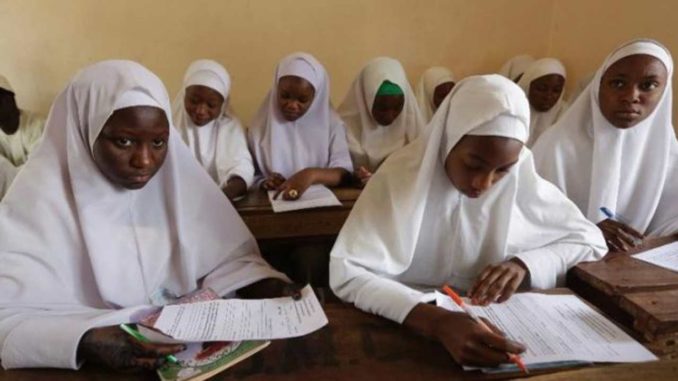
Provided that a formal stay of execution of the judgment of the Appellate Court has been obtained, the Lagos State Government’s decision to maintain its ban of hijabs in its public schools is remarkable and it will serve public good.
While reassuring the public the other day of the state’s commitment to the rule of law, Commissioner for Home Affairs, Abdulateef Abdulhakeem, had stated that the use of hijabs in Lagos public schools would not be allowed until the Supreme Court “determines an appeal seeking to upturn the decision of a Court of Appeal.”
As the stakeholders in this very important case earnestly await the decision of the Supreme Court, all the parties in this controversial case must be reminded of a few key points and facts, the most basic of which is that religion is a strictly personal affair whose manifestations in public spaces must be reduced to the barest minimum.
Schools, particularly primary and secondary schools, are part of the most important public institutions necessary for the development of citizens.
It is only sensible, therefore, that at this key phase of the growth of children the feeling of oneness, rather than difference, should be ingrained into their minds.
The wide and age-long use of school uniforms is presumably a testament to this community-oriented principle.
Pupils should be encouraged to perceive one another as together and alike instead of being separated along ethnic, class, and/or religious lines at that pupa state of development.
Without prejudice to the groundswell of opinions in this connection, advocating the use of hijabs in schools diminishes this idea of oneness. We mean this in the name of everything that is noble about this great nation.
The purpose of education is not ambiguous; it is enlightening and so should not be deployed for the entrenchment of religious devotion in the impressionable mind of the pupils.
That would be indoctrination, and one of the salient goals of schooling is specifically to guard the mind of the educated against all forms of indoctrination.
There are, in any case, special schools such as seminaries and ile kewus that have been built for the purpose of religious orientation.
In such specialised settings the wearing of religious regalia is a splendid and in fact indispensable practice.
In public, secular schools however (and it must not be forgotten that Nigeria is constitutionally a secular state), religious dressing should normally constitute a malpractice insofar as enrolment in such schools, in the first place, remains optional.
If parents can choose whether to send their children to public secular schools or dedicated religious institutions, schools reserve the right to determine their own sartorial policies.
Emphasis should be on the quality of education and the proper equipment of pupils for both internal and external competition.
It is indeed an index of underdevelopment that in this universalistic twenty-first century, debates over school curriculum are swept under the carpet while the wearing of hijab is being pushed to the level of a national contention.
How does any piece of religious paraphernalia save a girl-child from poverty and rape?
How does the veil guarantee academic or professional excellence?
Does it, in any case, even guarantee the virtue, the purity that closure seeks to force on erring flesh?
Having now moved to more practical concerns, it appears that the continued use of hijab in public schools and spaces would only lead to a heightening of fear and trembling in the citizenry.
This is in the light of the fact that terrorist-extremist religious organisations all over the world and in Nigeria in particular have become quite fond of deploying hijab-wearing women in their suicide-bombing rampages.
It is imperative for the Supreme Court, in making its decision, to consider this specific national security concern and how well-equipped the state is in dealing with it.
Not to be taken as an advocacy for the complete banning of religious practices, this is merely a call for their proper regulation in order to restore peace and calmness in an already heated polity.
Perhaps it would constitute less of a security concern if use of religious attires were confined to religious institutions, since it is not likely that an extremist-terrorist would attack members of his or her own sect. It would also be more practical, definitely.
What would be impractical is to reinstate the use of hijabs in public schools, for then there would be no basis for rejecting other forms of religious clothing (celestial gowns, or even the animal skins and amulets of traditional worshippers).
Then every public school is bound to look like a shambolic site of Halloween.
That would be, in the main, disastrous for the acclaimed economic capital of West Africa, Lagos, in the most populous black nation on earth.
So, promoters of this divisive tendency should renew their minds as we renew efforts to rebuild this nation that politicians have been competing to ruin – through ethnic and religious weapons.
Our children should be shielded from this time bomb: they should be made to wear school uniforms.
This will be in public interest that the Lagos State government seeks to protect.
END

Be the first to comment